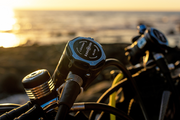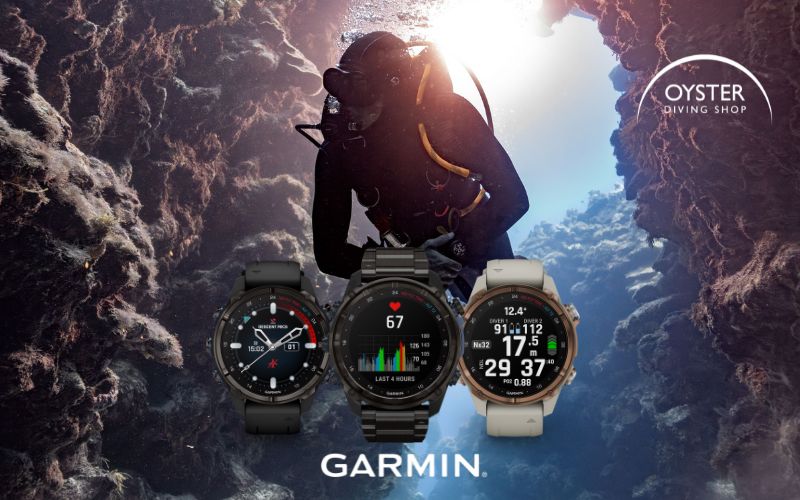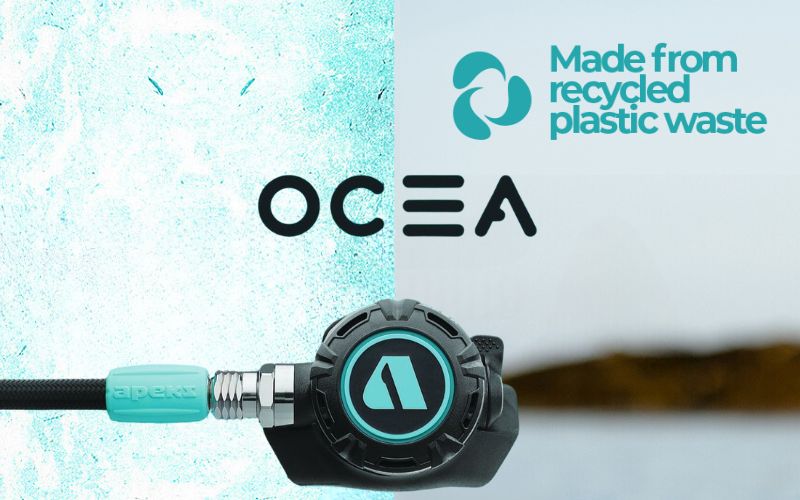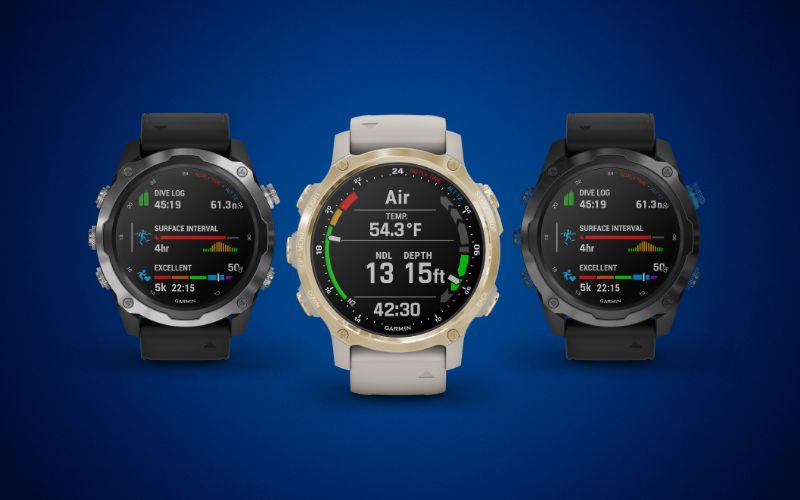Everything You Need to Know to Enjoy Snorkelling

Snorkelling can be an extremely exciting and liberating experience. You can come across a variety of marine life and every snorkelling trip will be different, in some way, from the last. However, while snorkelling is a very enjoyable and easy sport, without some basic skills, good experience, and knowledge about the dangers of the ocean, a first-time snorkelling experience could be a scary and dangerous experience for you. At Oyster Diving we specialise in scuba diving lessons. but don't often talk about snorkelling, which is why I've written this article on everything you need to know to enjoy snorkelling. We hope that you find it helpful!
Masks That Fit
First thing’s first, your snorkel mask must fit your face. If it does not fit properly, water is guaranteed to leak in. To ensure that your mask is properly fitted, hold your mask to your face and breathe in through your nose. If the mask creates a perfect seal and stays in place without you having to hold it, you’ve got it right. If you have bad eyesight, consider getting a prescription-adjusted mask to help you see clearly under the water without having to wear glasses or contact lenses.
If you have a moustache, this could cause a problem with the ‘sealing’ effect so you may have to shave! Be sure to warn the kids, as we’ve all heard the stories of parents traumatising their young children by shaving off their beards. However, going beardless will mean that your mask can seal without any problems.
When you fit your snorkelling mask, the strap should fit snuggly at the widest area of your head. If you wear it at the base of your head, water will seep in. The water should only apply enough pressure to seal the mask in place so don’t wear it too tightly.
Learn to Defog
A very important snorkelling tip is learning how to defog your mask. Masks that fog up are very common as they react to the body heat you expel while swimming around. However, a foggy mask that you can’t see clearly out of can ruin your diving experience, so be sure to prevent it. Many people use saliva to defog their masks and this is a very effective technique. However, depending on how worried you are about hygiene, there are also special anti-fog gels available on the market that work just as well. Be sure to choose a gel that is non-toxic to the environment, biodegradable and alcohol free. These anti-toxic gels are not only for your safety but also for the safety of the reefs and their inhabitants. When snorkelling, you want to be observing the marine life not damaging it.
Choosing Fins
Choose a pair of fins that fit snuggly but aren’t too tight. If they are too tight and they hurt your feet or cause you to curl your toes, even slightly, you may get cramps after only a short time of being in the water. We recommend that fins are always slightly bigger rather than too small as slightly bigger fins will slip onto wet feet easily.
Suiting Up
When it comes to understanding wetsuits, the general assumption is that they are only for use in chilly weather. When in fact, they serve multiple purposes. They are great at protecting your skin from those painful sunburns, they keep your skin protected from any stinging ocean particles and they help to provide buoyancy. There are also, as many people know, ideal for keeping you warm on those colder days.
Always Practice Your Breathing
This may seem like an obvious point but all too often people are filled with so much enthusiasm that they rush straight in without first practicing how to breathe through their snorkel. To practice, put your mask on and breathe through the tube. Don’t bite down on the tube otherwise your jaw will get sore quickly. Practice some breathing exercises to get yourself comfortable. Once your feel in confident to, practice the classic calm floating face down in the water.
Reduce Effort
Snorkelling is not about how fast you can whizz around the reef. In fact, you are far more likely to have an enjoyable time if you relax, take it slow and swim safely. The trick to snorkelling is to stay calm and relaxed. Only swim at a speed that allows you to breathe slowly and easily through your snorkel. You will find that your snorkel does limit your breath so you must be careful to swim at a pace that does not demand heavy breathing.
First Diving Location
We recommend you go from the beach for your first time instead of a boat. Jumping off a boat straight into deep water can be daunting your first time. Many first-time divers are understandably nervous. Combine that nervousness with the unease about breathing through a snorkel and using a mask, and your snorkelling experience can become less than fun. Therefore, we would recommend you take it slowly. Start off in the calm, shallow waters on the beach and move slightly further out as you become more confident. There is no rush, however, and everyone learns at their own pace, becoming comfortable with new situations in their own time.
For your first diving location, it is best to choose a calm spot. This can often mean going out in the morning. Nothing will ruin your first-time experience like going out into a rough ocean where the waves are stirring up the sand and distorting your view of the reefs below. Snorkelling in rough ocean conditions can also be extremely dangerous. Not only does it make using your equipment more difficult but it greatly increases how much effort swimming requires, meaning you get tired faster. And it can pull you under or hit you against sharp rocks. We suggest ‘If in doubt, don’t go out’. If you are not certain of currents, tides, waves and other ocean unknowns, stay on shore.
Keep Your Distance
When diving, you are simply observing the environment around you. Even if fish approach you, be sure to maintain a safe distance and do not touch them. This especially applies to corals as some are toxic to humans and can cause nasty cuts or infections. No matter how many pretty shells you may find, resist the temptation to pocket them as it is not ecologically sound and can be illegal in some parts of the world. It is good to have a healthy respect for marine life.
Snorkelling Buddy
Never go out into the ocean alone and never leave home without your snorkelling buddy. Don’t be deceived by the warm water, the shining blue waves or the stunning white sand. Ocean conditions can change with extreme rapidity. The ocean is alive and its waves can easily wash you away in a split second of lost concentration. Understanding the basics of how the ocean moves and your place in the movement is essential for safety. It is so easy to get caught up in the beauty of a diving experience, swimming after schools of fish only to find that you have paddled out much further than you intended. Make sure you are confident in your swimming abilities and never go snorkelling alone. It could save your life.
Wear Sunscreen
Snorkelling is a lot like winter sports…yes, you read that correctly. With both your face is covered with a mask and your body is covered in a wetsuit or snowsuit. In both these situations it can be easy to assume sunscreen isn’t required. However, especially when snorkelling, sunburns are very common and painful. Even if the sky is cloudy, the reflective qualities of the water can amplify the sun’s power. Make sure that you apply plenty of strong, waterproof sunscreen to all exposed areas of your body. You may be on the surface of the water for hours and protecting yourself effectively against sunburn will avoid any painful redness or peeling at the end of the day.
Stay Hydrated
When distracted by something as wonderful as snorkelling, it is easy to forget to stop periodically for a drink. Dehydration is common, especially when snorkelling all day in the sunshine. We recommend that you take a break every hour to get a drink of water. Do not drink the seawater as the salt can dehydrate you further. If you are organised ahead of time, you could purchase a waterproof watch and set hourly reminders to rehydrate as it is so easy to forget, especially when you are enjoying yourself!
Know Your Limits
Finally, the best and most important advice we could give to any first-time snorkelers out there is to know your limits. This is vital. There is no good reason to push your limits as you snorkel. We all have different fitness and ability levels. Don’t try to push yourself beyond your own limitations just to keep up with or impress others. Your experience, fitness and limitations will grow as you become a more experienced snorkeler. As with all things, it takes time.
We hope that you have found this article helpful and that it has answered your snorkelling questions! Let us know in the comments below when your first snorkelling trip is. We would love to hear from you!







